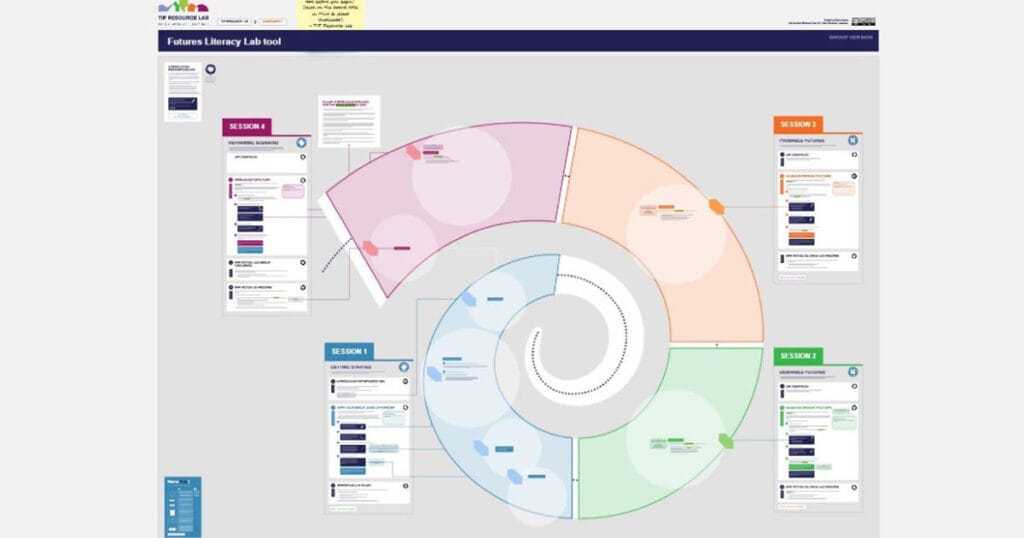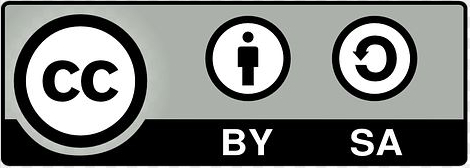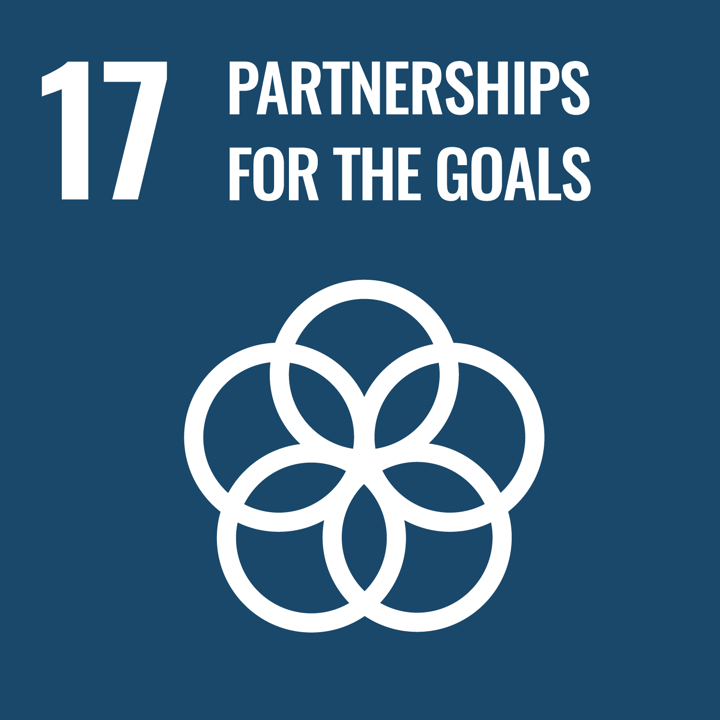
Vorgesehener Endnutzer: Lehrer
Altersgruppe: Sekundarstufe I; Sekundarstufe II
Lehrplan der Schule: Social & Environment Science; Languages; Arts; Applied Science
Themen und Fragestellungen: Futures Thinking; Information & Knowledge
Dauer: 4 session (3 x 90 mins and 1 x 120 mins)
Art der Ressource: Guidelines & Notes, Lesson Plans, Online Tool, Workshop
Schlüsselwörter: Futures Literacy, Imagination, Workshops, Online Tool, Student-Centred Learning
Sprachen: Englisch
Beschreibung
Die Futures Literacy Lab was created by the Transformative Innovation Policy Consortium (TIPC), a multi-country initiative dedicated to how policymakers, academics and funding agencies can orientate science, technology and innovation towards transition and a more sustainable future.
This tool guides participants through a Futures Literacy Lab, a practical method to help us reveal, reframe and rethink the assumptions we use to imagine the future. It draws on TIPC’s Nordic members’ experience of running a Lab in partnership with UNESCO and The Nordic Institute for Studies in Innovation, Research and Education in 2021.
Participants in the Lab will exercise their imaginative capabilities and play with their images of the future. The point is not to predict the future, but to explore different stories about it, and to use these stories to reflect on our preconceptions about social, cultural, economic, environmental and technological drivers.
This is a capacity development activity and may lead to second order learning in relation to the assumptions and underlying beliefs influencing a TIP theory of change.
Wie Sie diese Ressource nutzen können
The tool is for use by participants during a facilitated workshop series. It is not designed to be self-facilitated and requires (a) one lead facilitator, (b) a team of small group facilitators, and (c) a group of participants, some of whom will act as rapporteurs.
If you are preparing to facilitate the sessions, please refer to the guidance for facilitators and the slides introducing the Futures Literacy Lab methodology.
Die Ressourcen
Futures Literacy Lab Guidance for Facilitators PDF:
The Tool: Future Literacy Lab and supporting resources can be accessed on the TIP Resource Lab website (here).
Other Futures Literacy resources hosted by the TIP Resource Lab can be accessed here.
Die UNESCO Futures Literacy & Foresight website provides additional information and resources to understand the importance of futures literacy in preparing recovering and inventing is the face of change.
Lernergebnisse (Lehrkräfte)
- Abfrage des Vorwissens und Weiterentwicklung von Wissen und Verständnis von Schlüsselkonzepten der nachhaltigen Bürgerschaft, wobei etablierte Weltanschauungen und Werte in Frage gestellt werden.
- Anwendung einer Reihe von geeigneten Instrumenten und Rahmenwerken zur Förderung des bürgerschaftlichen Engagements von Studierenden im Bereich Nachhaltigkeit
- Reflektieren Sie die Praxis und untersuchen Sie die nationalen Lehrpläne, um Möglichkeiten zur Förderung der nachhaltigen Bürgerschaft auf interdisziplinäre Weise zu identifizieren und mit externen Interessengruppen in Kontakt zu treten.
- das Wissen, die Instrumente und den Rahmen gemeinsam zu synthetisieren, um Bildungsmaterialien und Unterrichtspläne zu erstellen, die an ihren eigenen lokalen Kontext angepasst sind
- Durch Workshop-Aktivitäten und Praxisgemeinschaften werden Kapazitäten und Handlungskompetenzen von Lehrkräften und Führungskräften im Bereich Sustainability Citizenship aufgebaut.
Grüne Kompetenzen
- Nachhaltige Werte verkörpern: Bewertung der Nachhaltigkeit
- Komplexität in der Nachhaltigkeit berücksichtigen: Systemdenken; Kritisches Denken; Problemstellung
- Visionen für eine nachhaltige Zukunft: Zukunftskompetenz; Anpassungsfähigkeit; forschendes Denken
- Handeln für Nachhaltigkeit: Kollektives Handeln; individuelle Initiative
Creative Commons

The Resource Lab was created by the Transformative Innovation Policy Consortium (TIPC), a multi-country initiative dedicated to how policymakers, academics and funding agencies can orientate science, technology and innovation towards transition and a more sustainable future. The resources are shared here under Creative Commons License 4.0 Attribution and ShareAlike and with kind permission from TIPC.
SDGs



